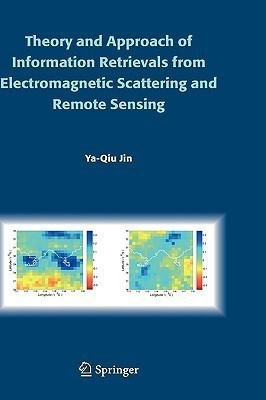Theory and Approach of Information Retrievals from Electromagnetic Scattering and Remote Sensing(English, Hardcover, Jin Ya-Qiu)
Quick Overview
Product Price Comparison
Advances in space-borne remote sensing have significantly changed the mankind viewpoint how to observe our own Earth planet. Great amount of remote sensing data and images presents new resources to quantitatively describe and monitor our Earth environment, atmosphere, oceanic and land surfaces. In remote sensing, electromagnetic (EM) scattering, emission and wave propagation, as interaction with the Earth environment, lay the physical basis for understanding and extracting geoscientific information. Study of electromagnetic waves with remote sensing application has become an active and interdisciplinary area. This book presents some new progress on the theoretical and numerical approaches for information retrieval of the remote sensing via EM scattering and emission. We begin in Chapter 1 with the vector radiative transfer (VRT) theory for inhomogeneous scatter media. The VRT takes account of multiple scattering, emission and propagation of random scatter media, and quantitatively leads to insights of elucidating and understanding EM wave-terrain surface interaction. Meanwhile, it is extensively applicable to carrying out data interpretation and validation, and to solving the inverse problem, e.g. iteratively, physically or statistically. In Chapter 1, iterative solutions of multiple scattering and emission from inhomogeneous dense scatter media, and inhomogeneous non-spherical scatter media are discussed. Three-dimensional VRT equation (3D-VRT) for spatially inhomogeneous random scatter media for high resolution observation is also investigated. The polarimetric imagery of synthetic aperture radar (SAR) technology is one of most important advances in space-borne microwave remote sensing during recent decades.


